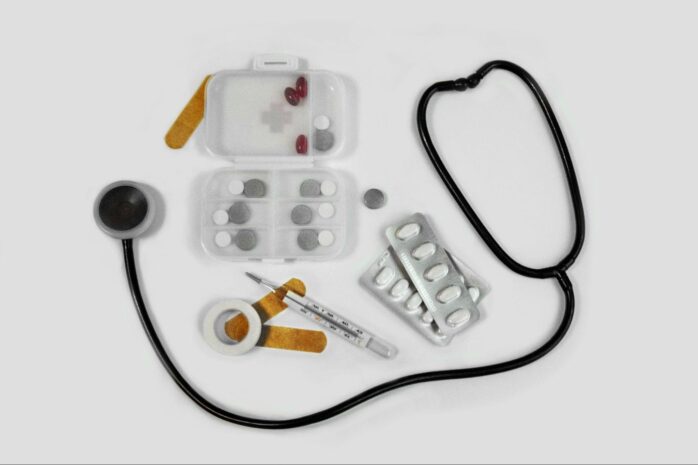
What are the major medical billing challenges facing physicians and other healthcare professionals? How can you prevent them? Why should medical billing specialists pay attention? This article has the answers to all of your questions; continue reading to find out more!
Medical billing is a vital component of delivering great healthcare services. Even though the system is complicated, problems like coding mistakes have become more common. The effect may be catastrophic for patients and their families.
However, billing for medical services requires several procedures and processes. These medical billing processes are mistake-prone due to their complexity, and these errors often result from human error. Research indicates that 80% of all medical bills include mistakes.
These issues include poor coding, insufficient or erroneous paperwork, and misunderstandings between providers and coders. Medical billers and coders must collaborate to ensure that the relevant information is recorded into the correct code categories. This eventually contributes to improved patient care.
In this article, we will focus on seven of the most widespread medical billing issues and the most effective solutions, so without further ado, let’s get started.
1. Patient Education
Various medical billing problems can occur when a doctor or other medical professional treats a patient.
There is a possibility that the patient may get an inaccurate bill as a result of these issues, and there is also the possibility that these issues can result in legal complications.
Patients, especially newly insured patients, may mistakenly believe that having health insurance is all they need to entirely pay the expenses connected with office and hospital visits. This is because billing in the healthcare industry is often not as straightforward as it should be.
Patients and their families must be aware of these possible threats and be careful to ask questions about their treatment; a communication strategy to assist patients in comprehending their financial obligations is a crucial component of healthcare finance.
2. Lost Revenue
Over the last several years, medical billing problems have become a more prevalent concern. Patients’ widespread perception is that the services they get from hospitals and physicians do not provide sufficient compensation for the amount of money they spend.
This is because dealing with medical bills can be very costly, and many patients do not know how to handle them properly. According to research, billing errors waste 7 percent of global health expenditure, equal to 487 billion United States dollars.
Developing automated billing systems that can create bills for doctors and other healthcare professionals regularly is one approach that may be taken to enhance the accuracy of payments.
This would not only make it simpler for individuals to understand the payments they are responsible for making, but it would also minimize the amount of time physicians spend billing patients.
3. Late Payments
Medical billing is a crucial procedure that begins with filing a claim to the insurer. The claim is subsequently evaluated, and patient satisfaction and financial security are ensured if it qualifies.
However, late payments might result in expensive blunders and service delays. In medical billing, late payments may result in significant penalties and loss of coverage, so it’s crucial to be aware of the consequences of filing claims late.
Economic difficulties are the most prevalent cause of late payments; most of the time, individuals cannot afford to pay on time.
When systems depend on the patient to pay for services or insurance companies to pay for goods, it seems that payment delays are unavoidable.
4. Incomplete Patient Information
When patients complete their medical records, they guarantee the hospital or physician that they will always maintain correct and up-to-date health information. However, some patients’ records include partial or nonexistent information.
On the other hand, many patients are ignorant of some basic information essential for medical billing. This may result in various issues, including incomplete and inaccurate billing and possible fines from authorities.
Patients need to be aware of what they need to know to complete their medical bills appropriately, as this may go a long way toward helping to avoid the problems that have been identified.
In addition, it is necessary to provide training and education in medical billing to enable staff members to comprehend the information they must gather and the significance of this information.
5. Coding Mistakes
In the process of medical billing, errors are not uncommon and may occur fast and efficiently. Sometimes coded data is put into databases improperly, which may result in problems in billing and payments. These mistakes can be costly.
Even though hospitals have gained excellent expertise in using ICD-10 codes, these coding inaccuracies remain a serious concern.
When medical services are coded incorrectly, the insurance company will almost permanently deny the claim. When anything like this goes wrong, it might substantially affect the patient’s current financial circumstances.
To prevent expensive errors in your approaching medical billing procedure, take the time to study medical coding fundamentals. You will be able to correct any mistakes as soon as they appear and guarantee that the processing of your charges is done correctly if you follow these steps.
On the other hand, frequent contact between physicians and billing staff, in addition to regular medical billing training and education to keep employees up to speed on coding rules, are crucial components in eradicating these coding mistakes.
6. Duplicate Billing
Billing patients for their medical treatment is an essential step that contributes to ensuring that patients get the care that they need.
Nevertheless, errors may occur, such as when one staff member prepares a bill for a patient. Then another staff member does the same without recognizing that the legislation has already been designed for the patient.
In such a scenario, there would be a duplicate bill, which would lead to the patient being charged twice as much as necessary and possibly irritating the clientele. Patients may be very annoyed by this, and it may also put a strain on their finances.
Automation is the ideal answer to the problem of duplicate payments since it can issue a bill automatically and flag it as a duplicate if another person tries to submit a bill for the same services and treatments at the same time.
7. Referral or Authorization Not Present
A new medical billing problem has patients saying they were not provided referrals or authorization for treatments.
Before beginning physical therapy, individuals enrolled in some health insurance plans must get a reference from their primary care physician or permission from patient services. In the event that neither the reference nor the authorization is provided, the claim will be rejected.
On the other hand, patients may have problems with their medical bills if they cannot retrieve their original signature or referral paperwork or if they do not obtain the authorization they were assured they would receive.
These issues may result in litigation that is costly but also time-consuming and inconvenient, and they can even cause the healthcare provider to lose business.
However, to prevent problems with the patient’s medical billing, it is essential to ensure that all patients have received their referral paperwork and have signed them before commencing treatment.
Frequent Asked Questions
In this part, we will address the majority of the most frequently asked medical billing questions worldwide.
How Do I Fix Medical Billing Errors?
There are a few things that everyone should remember about billing. First, you should always ensure that all of the information you give your insurance company is correct. This covers your medical history, current symptoms, and current therapies. Next, check your medical record to ensure everything you’ve paid for is there. If you tell your insurer about this, they can fix any mistakes they find in your documents. Lastly, always follow up with your insurance company when you need to. This will ensure you pay your bills and get the care you need.
What Industry Is Medical Billing?
Medical billing involves billing healthcare providers for delivered services. It entails calculating, collecting, and transferring taxes, fees, and other payments to healthcare providers.
Medical billing and coding, which guarantees that a healthcare institution is reimbursed for services rendered to a patient, are the backbone of the healthcare revenue cycle.
What Is Unethical Billing?
Unfair, misleading, and unlawful billing practices are examples of what are referred to as “unethical billing.” This may result in monetary losses for the patients and the companies. There are many ways in which billing practices can be unfair, misleading, or against the law. Some standard methods are overcharging patients or charging more than needed to cover costs.
Take Away
When billing issues arise, patients are always the first to know. Unfortunately, many patients are unaware of some of the most frequent billing errors. To prevent these issues, you must first ensure that you fully understand your medical insurance coverage. This can help you understand which treatments are covered by your insurance and how much each service costs.
Additionally, familiarize yourself with your deductible and out-of-pocket costs. These can help you prepare for your medical expenses and evaluate what therapy is essential.
Also, photocopy all pertinent medical documents. Both D&C reports and test results will be included. As soon as possible, put these papers in a secure location so you can quickly retrieve them when necessary. Be mindful that pre-existing conditions may influence your billing options.
In conclusion, healthcare professionals and individuals encounter several challenges regarding medical costs. However, to prevent these issues, it is essential to understand the types of bills and how to determine which one is owed. In addition, it is essential to be informed of the state regulations governing medical bills and how to comply with them. Thanks for reading!



















